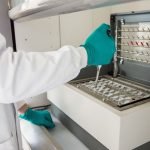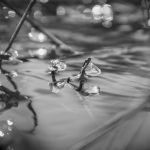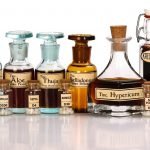Pre-Flight Herbal Regimen: Elderberry
Elderberry to the rescue
In a recent article, Michael Traub, ND showcases a study supporting the use of elderberry extract as a preventative measure during air travel(1). Black elderberry extract has been shown to inhibit the human influenza A (H1N1) virus by binding to H1N1 virions, thus blocking the ability of the virus to infect host cells(2). Elderberry has been shown to reduce flu symptoms by 3 to 4 days (3), and this current study specifically showed that elderberry can be used as a preventative measure during air travel, and to diminish cold symptoms (rhinovirus) if they do develop.
The Elderberry test
The product tested contained 600-900 mg of elderberry extract containing 90-135mg of anthocyanins. Traub notes that “this dose was far lower than [other studies],” however “since most of the active ingredients are excreted within 5 hours, it may be necessary to dose elderberry 4 or 5 times daily to even begin to obtain a 24-hour anti-influenza action from the plant.” Participants in the study received 2 capsules per day for 10 days prior to air travel, followed by an overseas dose of 3 capsules per day taken before departure (2 days before) until 4 or 4 days after arrival. Participants kept a daily diary throughout the study. The Wisconsin Upper Respiratory Symptom Survey (WURSS-21) was used to assess respiratory symptom-related quality of life, the SF-12 assessed general quality of life, and the Perceived Stress Scale (PSS) was used to measure participants’ perception of stress. Cold diagnosis was assessed by measuring the Jackson Score.
Decreasing symptom duration with Elderberry
Of the 312 participants, 29 (9%) suffered from a well-defined cold. The placebo group had over twice the symptom duration than the elderberry group (117 days versus 57 days), and much higher symptom severity scores. The study was not well powered, but does add to existing evidence to support the use of elderberry in cases where air travel is necessary and flu or rhinovirus exposure is a concern.
References:
1. Tiralongo E, Wee SS, Lea RA. Elderberry supplementation reduces cold duration and symptoms in air-travelers: a randomized, double-blind placebo-controlled clinical trial. Nutrients. 2016;8(4):182.
2. Roschek B, Fink RC, McMichael MD, Li D, Alberte RS. Elderberry flavonoids bind to and prevent H1N1 infection in vitro. Phytochemistry. 2009;70:1255-1261.
3. Zakay-Rones Z, Varsano N, Zlotnik M, et al. Inhibition of several strains of influenza virus in vitro and reduction of symptoms by an elderberry extract (Sambucus nigra L.) during an outbreak of influenza B Panama. J Altern Complement Med. 1995;1(4):361-369.
 Node Smith, associate editor for NDNR, is a fifth year naturopathic medical student at NUNM, where he has been instrumental in maintaining a firm connection to the philosophy and heritage of naturopathic medicine amongst the next generation of docs. He helped found the first multi-generational experiential retreat, which brings elders, alumni, and students together for a weekend campout where naturopathic medicine and medical philosophy are experienced in nature. Three years ago he helped found the non-profit, Association for Naturopathic ReVitalization (ANR), for which he serves as the board chairman. ANR has a mission to inspire health practitioners to embody the naturopathic principles through experiential education. Node also has a firm belief that the next era of naturopathic medicine will see a resurgence of in-patient facilities which use fasting, earthing, hydrotherapy and homeopathy to bring people back from chronic diseases of modern living; he is involved in numerous conversations and projects to bring about this vision.
Node Smith, associate editor for NDNR, is a fifth year naturopathic medical student at NUNM, where he has been instrumental in maintaining a firm connection to the philosophy and heritage of naturopathic medicine amongst the next generation of docs. He helped found the first multi-generational experiential retreat, which brings elders, alumni, and students together for a weekend campout where naturopathic medicine and medical philosophy are experienced in nature. Three years ago he helped found the non-profit, Association for Naturopathic ReVitalization (ANR), for which he serves as the board chairman. ANR has a mission to inspire health practitioners to embody the naturopathic principles through experiential education. Node also has a firm belief that the next era of naturopathic medicine will see a resurgence of in-patient facilities which use fasting, earthing, hydrotherapy and homeopathy to bring people back from chronic diseases of modern living; he is involved in numerous conversations and projects to bring about this vision.










